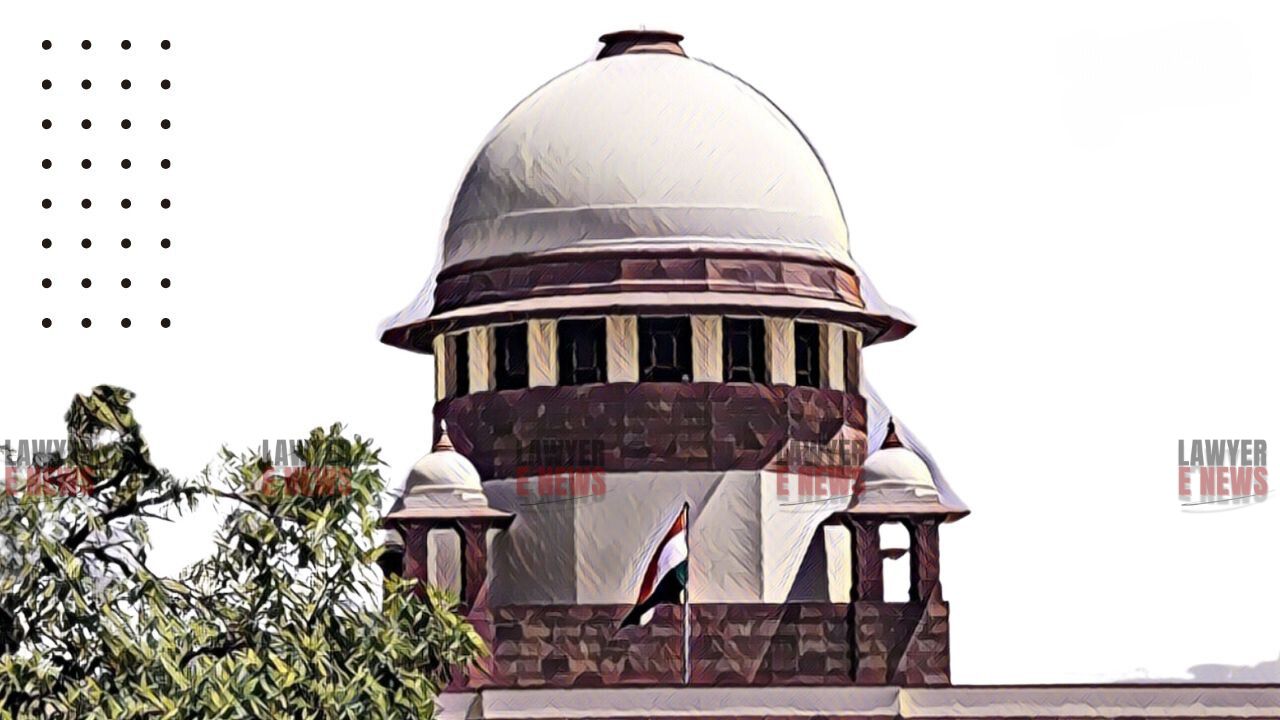-
by Admin
16 February 2026 1:47 PM



“In the event the defendant comes within Section 2(g) of the 1997 Act, nothing remains to be adjudicated further... the defendant is automatically relegated to the status of a trespasser” –Supreme Court of India upholding the eviction of a tenant’s son on the ground that he had overstayed beyond the statutory five-year period of inherited tenancy permissible under the West Bengal Premises Tenancy Act, 1997.
The Court ruled that “a dependent heir of a deceased tenant, unless a widow, is entitled to continue in possession for a maximum of five years from the tenant’s death, failing which he becomes a trespasser.” The ruling affirms both the Calcutta High Court’s decision in FAT 7 of 2024 and the original decree of eviction passed by the City Civil Court at Calcutta in Title Suit No. 1068 of 2021.
The factual background revolved around a tenancy originally held by Ranjan Ghosh, who passed away on 13 July 2016. His son, the petitioner Rajiv Ghosh, continued to occupy the premises without any fresh tenancy agreement. The landlord, Satya Narayan Jaiswal, issued a notice on 20 July 2018, asserting that the petitioner’s statutory right expired in July 2021, i.e., five years after his father’s death.
Despite the notice, the petitioner continued possession, prompting the respondent to file a suit for possession and mesne profits.
The petitioner admitted in his written statement that his father was the sole tenant and that rent was paid till May 2021, after which the landlord stopped accepting it.
“Decree Can Be Passed on Admission Without Waiting for Trial”: Supreme Court
The plaintiff sought a decree based on admissions under Order XII Rule 6 CPC, which the trial court granted. The High Court upheld this decree, concluding: “The defendant, being the son of the original tenant, would be entitled to sustain his tenancy in such capacity only up to the expiry of a period of 5 years from the demise of the original tenant.”
It was further noted by the High Court: “In the event the defendant comes within Section 2(g) of the 1997 Act, nothing remains to be adjudicated further in the suit… the plaintiff immediately becomes entitled to get a decree for eviction.”
The Supreme Court endorsed this reasoning, holding that there was “clear and unequivocal admission made by the defendant in his written statement”, which empowered the courts to invoke Order XII Rule 6 CPC. The Court cited its previous ruling in Uttam Singh Dugal & Co. Ltd. v. United Bank of India, (2000) 7 SCC 120, where it had observed: “Where a claim is admitted, the court has jurisdiction to enter a judgment for the plaintiff and to pass a decree on the admitted claim.”
The apex court explained that: “The provisions of Rule 6 are enabling, discretionary and permissive. They are not mandatory, obligatory or peremptory… The word ‘may’ is used and not ‘shall’, which prima facie shows that the provision is an enabling one.”
“No New Tenancy Created – Defendant’s Occupation Becomes Unauthorized”: Court
The Court rejected the argument that there was any creation of a new tenancy. It stated: “The pleading as to there being a talk of a fresh tenancy being granted in favour of the defendant is neither here nor there since even the said pleading does not tantamount to establish that a new tenancy has already been created…”
Thus, the Court held that the defendant could not claim continued tenancy rights without formal agreement, and with the statutory 5-year period over, he had no legal protection.
“Cannot Argue 1997 Act Is Inapplicable While Relying On It in Lower Court”: SC Rebukes Petitioner
An additional argument was raised before the Supreme Court that the petitioner was not governed by the West Bengal Premises Tenancy Act, 1997. The Court rejected this contention outright: “We take notice of the fact that this point was never raised or argued before the High Court… On the contrary, para 9 of the reply filed by the petitioner clinches the issue.”
The Supreme Court quoted the petitioner’s own reply before the trial court: “Moreover, the defendant filed an application under Sections 7(1) and 7(2) of the W.B.P.T. Act… for payment of current rent as well as arrears…”
It remarked: “If according to the petitioner the provisions of the Act, 1997 are not applicable, then what was the good reason for him to file the application under Sections 7(1) & 7(2) of the Act?”
Dismissing the SLP, the Bench comprising Justice J.B. Pardiwala and Justice R. Mahadevan also directed that: “Registry shall circulate one copy each of this order to all the High Courts and the High Courts in turn shall circulate the order in their respective District judiciary.”
The Court concluded: “We are of the view having regard to the clear and unequivocal admission made by the defendant… the High Court committed no error much less any error of law in decreeing the suit applying Order XII Rule 6 of the CPC.”
Accordingly, the Special Leave Petition was dismissed, affirming the eviction.
Date of Decision: April 7, 2025
